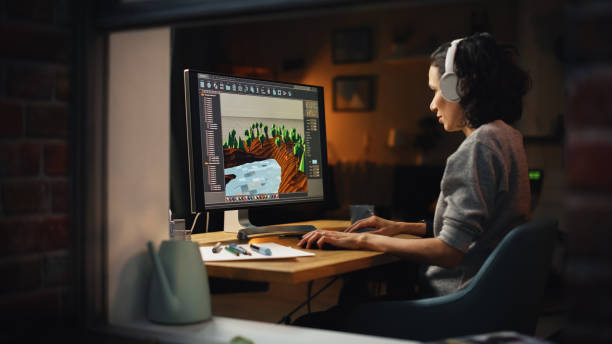Feeling overwhelmed by the vast world of game development? You’re not alone. Mastering game engines, physics, AI, and performance optimization can be challenging, but a structured roadmap will help you stay on track and boost your confidence.
Overcoming Common Interview Prep Pain Points
- Too Many Technologies: Choosing between Unity, Unreal Engine, or custom engines can be confusing.
- Graphics & Performance Optimization: Balancing visual quality with performance is complex.
- Physics & AI Complexity: Understanding game physics and AI behavior requires both theory and practice.
- Lack of Real-World Projects: Employers prefer candidates with hands-on experience.
- Time Constraints: Preparing while managing daily responsibilities is tough.
Your 4-Week Preparation Roadmap
A structured, week-by-week plan will help you cover all critical topics.
Week 1: Master Game Engines & Programming Basics
Focus: Unity, Unreal Engine, and core programming skills.
Daily Goals:
- Day 1: Learn the basics of Unity and Unreal Engine (choose one or explore both).
- Day 2: Master C# (for Unity) or C++ (for Unreal).
- Day 3: Work on game object creation, movement, and interactions.
- Day 4: Study input handling, UI elements, and basic animations.
- Day 5: Explore scene management and game loops.
- Day 6: Build a simple 2D or 3D mini-game.
- Day 7: Review key concepts and debug your project.
Tip: Be prepared to explain the differences between Unity and Unreal Engine in interviews.
Week 2: Dive into Game Physics & AI
Focus: Game physics, collision detection, and artificial intelligence.
Daily Goals:
- Day 1: Understand rigid body physics, collisions, and forces.
- Day 2: Learn about raycasting and physics materials.
- Day 3: Explore pathfinding algorithms (A*, NavMesh).
- Day 4: Study enemy AI behavior (state machines, decision trees).
- Day 5: Implement a simple AI-driven character.
- Day 6: Debug physics and AI-related issues in your game.
- Day 7: Review AI interview questions and best practices.
Tip: Interviewers may ask you to implement a basic pathfinding algorithm, so practice coding A.*
Week 3: Graphics, Rendering, and Performance Optimization
Focus: Shaders, rendering pipelines, and game performance.
Daily Goals:
- Day 1: Learn about game rendering pipelines and lighting techniques.
- Day 2: Explore shaders (HLSL for Unity, GLSL for OpenGL, Material Editor for Unreal).
- Day 3: Optimize game performance (LOD, culling, batching).
- Day 4: Study GPU vs. CPU optimization techniques.
- Day 5: Implement post-processing effects (bloom, motion blur).
- Day 6: Debug rendering issues and performance bottlenecks.
- Day 7: Review real-world case studies of game performance improvements.
Tip: Be prepared to explain how to optimize a game for low-end devices.
Week 4: Game Architecture, Behavioral Interviews, and Mock Sessions
Focus: System design, problem-solving, and interview practice.
Daily Goals:
- Day 1: Study game architecture patterns (Entity Component System, Singleton).
- Day 2: Review behavioral interview questions using the STAR method.
- Day 3: Record yourself answering common technical and behavioral questions.
- Day 4: Design a multiplayer game system (client-server model, networking basics).
- Day 5: Participate in a mock interview with a peer or mentor.
- Day 6: Review industry trends (VR, AR, procedural generation).
- Day 7: Relax, visualize your success, and get ready for your interview. Test yourself using our Interview Question Generator.
Tip: Be ready to discuss past projects, challenges faced, and how you solved them.
Bringing It All Together
By following this roadmap, you’ll be fully prepared for your Game Developer interview.
- Break It Down: Focus on one topic at a time to avoid getting overwhelmed.
- Hands-On Learning: Build mini-games to practice concepts.
- Use the Right Tools: Master debugging tools like Unity Profiler and Unreal Insights. Practice with interactive resources like our Interview Question Generator.
- Stay Confident: Your structured approach and preparation will set you apart.
Start preparing today and take a step closer to your dream game development role! 🚀




